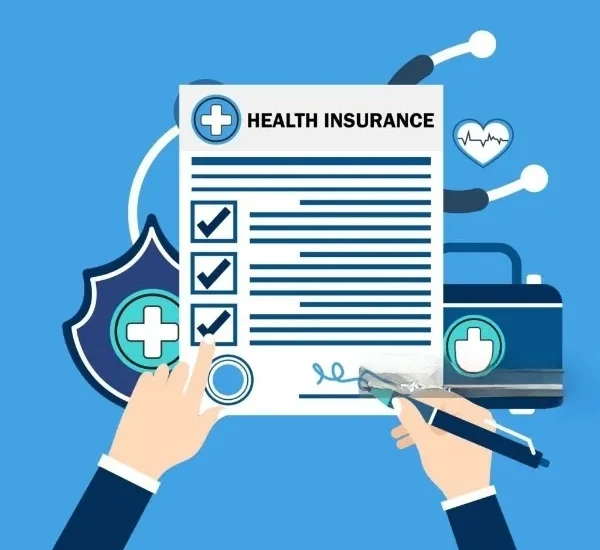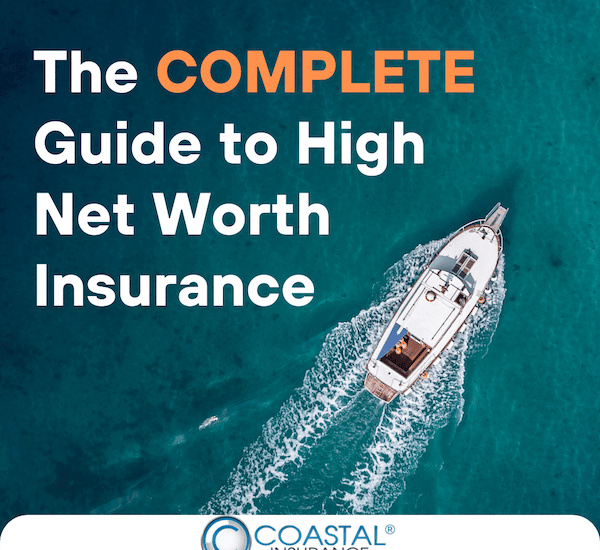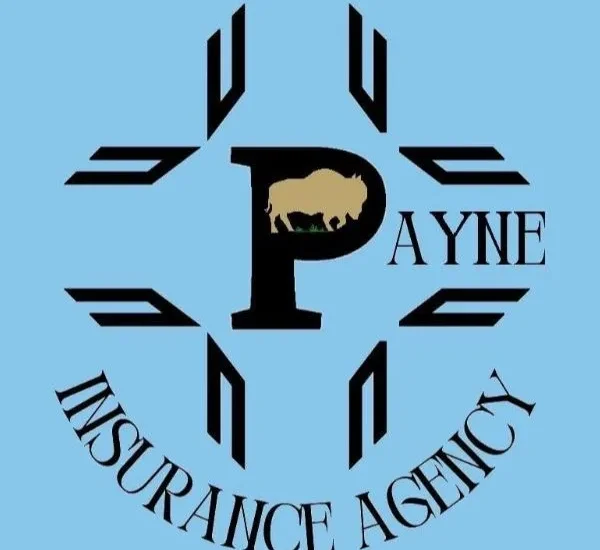Finding the right car insurance in Wisconsin can be a daunting task, especially for drivers with a challenging driving record. Premiums often vary due to factors like past accidents, violations, and even where you live. This guide is here to help you navigate the complexities of Wisconsin’s car insurance landscape with confidence and clarity, ensuring you secure the coverage you need at a price that fits your budget. We’ll walk you through essential topics such as state-mandated coverage requirements, the impact of your driving history, comparisons of top insurers, strategies to save money, and the specifics of SR-22 insurance.
Toc
- 1. Wisconsin’s Minimum Car Insurance Requirements: What You Need to Know
- 2. How Your Driving Record Impacts Insurance Rates
- 3. Strategies for Finding Affordable Car Insurance in Wisconsin
- 4. Moving Forward with Confidence
- 5. Top Car Insurance Companies in Wisconsin: A Comparison
- 6. A Guide to SR-22 Insurance in Wisconsin
- 7. Related articles 02:
- 8. Additional Factors Affecting Your Wisconsin Auto Insurance Premiums
- 9. Resources and Tools for Finding the Best Car Insurance
- 10. Conclusion
- 11. Related articles 01:
Wisconsin’s Minimum Car Insurance Requirements: What You Need to Know
To drive legally in Wisconsin, every motorist must meet the state’s minimum liability coverage requirements. These protections ensure that, in the event of an accident, you’re financially prepared to cover damages or injuries you may cause. Understanding these requirements is essential for staying compliant with state laws and safeguarding your financial well-being.

Mandatory Liability Coverage
Wisconsin law mandates the following minimum coverage levels:
- Bodily Injury Liability (BIL): Covers medical expenses for injuries caused to others in an accident you’re responsible for. Minimum limits are $25,000 per person and $50,000 per accident.
- Property Damage Liability (PDL): Pays for damage you cause to someone else’s property, such as a vehicle or structure, with a minimum limit of $10,000 per accident.
- Uninsured/Underinsured Motorist Coverage: Protects you if you’re involved in an accident with a driver who lacks sufficient insurance. Minimum limits are $25,000 per person and $50,000 per accident.
While these are the legal minimums, additional coverage can provide greater financial protection, ensuring you’re better prepared for unexpected events.
Consequences of Driving Without Insurance
Wisconsin imposes strict penalties for uninsured drivers. Fines, license suspension, and the requirement to file an SR-22 certificate—proof of financial responsibility—are just some of the potential consequences. Remaining informed and compliant is essential to avoid these costly legal issues.
For more information on Wisconsin’s car insurance laws, visit the Wisconsin Department of Transportation website.
How Your Driving Record Impacts Insurance Rates
Your driving history is one of the most significant factors influencing your car insurance premiums. Insurers view your past behavior on the road as a predictor of future risk. While a clean record can help you secure lower rates, traffic violations, accidents, and DUIs can cause premiums to rise significantly.
The Impact of Speeding Tickets
Even a single speeding ticket can result in a noticeable increase in your premium—on average, around 22%. The specific increase depends on factors like how far over the speed limit you were driving, where the violation occurred, and your insurer’s pricing model. Multiple violations can compound these costs. Staying mindful of speed limits and driving safely is key to avoiding these penalties.
At-Fault Accidents
At-fault accidents can have a more substantial impact on your rates, with premiums increasing by an average of 59%. The severity of the accident and the damages involved play a significant role in determining the cost increase. Some insurers offer accident forgiveness programs that may mitigate the impact of a first accident, so be sure to explore your options.
The Serious Implications of DUIs
Driving under the influence (DUI) is considered a major violation and often leads to the steepest premium increases—an average of 59% in Wisconsin. Additionally, a DUI may require you to file an SR-22, which can further add to your costs. Understanding the long-term financial consequences of a DUI underscores the importance of safe and responsible driving.
Accident Forgiveness Programs
Some insurers offer accident forgiveness programs, which can help drivers avoid significant premium hikes after their first at-fault accident. These programs vary widely, so it’s worth asking about them when comparing policies.
Strategies for Finding Affordable Car Insurance in Wisconsin
Even with a less-than-perfect driving record, affordable car insurance is within reach. By taking a strategic approach, you can find coverage that balances cost and protection.
Compare Quotes from Multiple Insurers
Shop around and compare rates from several leading providers in Wisconsin, such as State Farm, GEICO, Progressive, Travelers, and American Family. Each insurer evaluates risk differently, meaning one company may offer better rates for your circumstances than another.
Beyond price, consider coverage options, deductibles, and customer service reviews. Sometimes, paying slightly more for better coverage or superior service can save you money in the long run.
Take Advantage of Discounts
Many insurers offer discounts that can significantly lower your premiums. Common options include:
- Safe Driver Discounts for maintaining a clean record over time.
- Good Student Discounts for students with strong academic performance.
- Defensive Driving Course Discounts for completing an approved safety course.
- Bundling Discounts for combining multiple policies, such as auto and home insurance.
Ask insurers about available discounts to maximize your savings.
Consider Adjusting Your Deductible
Opting for a higher deductible can reduce your monthly premium. However, ensure that you’re financially prepared to cover the deductible in case of an accident. Evaluate whether this trade-off aligns with your budget and risk tolerance.
Minimum Coverage vs. Full Coverage
For drivers on a tight budget or with a poor driving record, minimum coverage may seem like the most affordable option. However, it’s important to consider the potential risks. Minimum coverage might not fully protect you in the event of a serious accident, leaving you with significant out-of-pocket expenses. Full coverage, though more expensive, offers broader protection and peace of mind.
Moving Forward with Confidence
Navigating Wisconsin’s car insurance market doesn’t have to be overwhelming. By understanding the state’s requirements, evaluating how your driving record impacts your rates, and exploring strategies to save, you can make informed decisions that meet your needs and budget. Whether you’re looking to recover from a poor driving history or simply seeking better coverage, taking these steps will help you secure the protection you need while keeping costs manageable.
Top Car Insurance Companies in Wisconsin: A Comparison
When searching for the best car insurance in Wisconsin, it’s important to evaluate the leading insurers and their offerings. Here’s a closer look at some of the top companies:
State Farm Car Insurance
State Farm is one of the largest insurers in the U.S. and is known for its comprehensive coverage options and competitive pricing. They offer a variety of discounts, making them an attractive option for many drivers, especially those with minor violations. Additionally, State Farm has a strong customer service reputation, which can be beneficial for policyholders.
Travelers Insurance
Travelers is recognized for its robust coverage options and customizable policies. They offer unique features like accident forgiveness and diminishing deductible programs, which can appeal to drivers with a poor driving record. Reviews of Travelers often highlight their competitive rates and excellent customer service.
GEICO Insurance
GEICO is popular for its affordable rates and easy-to-use online services. They offer discounts for military personnel and federal employees, making GEICO a solid option for budget-conscious drivers, especially those looking for low-income car insurance in Wisconsin.
Progressive Insurance
Progressive is known for its innovative tools, like the Name Your Price feature, which helps drivers find coverage that fits their budget. They also offer a variety of discounts and are praised for great customer service. Progressive often comes up in discussions about the best car insurance in Wisconsin (hello, Reddit!) thanks to their competitive pricing.
American Family Insurance
American Family stands out for its personalized service and comprehensive coverage options. They offer flexible policies and loads of discounts. If you’re after cheap full-coverage car insurance in Wisconsin and have specific needs, American Family is worth checking out.
Comparison Table
| Insurer | Key Features | Average Premium Increase for Violations | | ————— | ——————————————– | ————————————— | | State Farm | Great customer service, lots of discounts | 22% for speeding tickets | | Travelers | Customizable policies, accident forgiveness | 59% for at-fault accidents | | GEICO | Affordable rates, fast online service | 59% for DUIs | | Progressive | Cool pricing tools, flexible options | 22% for speeding tickets | | American Family | Comprehensive coverage, personalized service | 59% for at-fault accidents |
Using comparison tools can make shopping for insurance a lot easier. Websites like NerdWallet and The Zebra let you compare quotes from different providers in no time.
A Guide to SR-22 Insurance in Wisconsin
An SR-22 isn’t actually insurance—it’s a certificate that proves you’re meeting the minimum coverage required by the state. In Wisconsin, you’ll need an SR-22 after certain violations, like DUIs or repeated offenses.
What’s an SR-22 All About?
An SR-22 proves you’re financially responsible and is required for high-risk drivers. If your driving record isn’t spotless, you might need one to get your license reinstated.
When Do You Need an SR-22?
You may need an SR-22 for things like:
- DUI or DWI convictions
- A bunch of traffic violations in a short time
- Driving without insurance
How Much More Does SR-22 Insurance Cost?
SR-22 insurance can make your premiums go up—usually by about 20% to 25%. It’s definitely something to keep in mind when budgeting for insurance, as the extra cost can add up.
How to Get SR-22 Insurance
To get an SR-22, just contact your insurance provider. They’ll handle the paperwork and file it with the state for you. Keep in mind, your premiums will likely be higher, and you’ll need to keep the SR-22 active for about three years. Letting it lapse can result in penalties, like losing your driving privileges again.
1. https://dienthoaivogo.com/mmoga-best-car-insurance-options-in-alabama-affordable-coverage-made-easy/
2. https://dienthoaivogo.com/mmoga-top-car-insurance-rates-in-the-usa-your-ultimate-guide/
3. https://dienthoaivogo.com/mmoga-top-car-insurance-options-for-seniors-in-louisiana/
4. https://dienthoaivogo.com/mmoga-affordable-car-insurance-in-indiana-the-ultimate-guide-for-seniors/
What Happens If You Don’t Comply?
Failing to keep your SR-22 active can lead to steep penalties, like fines and having your license suspended. It’s super important to stay on top of this and make sure you meet all the requirements to avoid bigger headaches down the road.
Additional Factors Affecting Your Wisconsin Auto Insurance Premiums
Several other factors beyond your driving record can influence your insurance rates. Understanding these elements can help you make informed decisions and find the best policy for your needs.
Type of Vehicle
The type of car you drive can have a big impact on your insurance costs. Expensive cars or models that are often stolen usually come with higher premiums. On the flip side, cars with advanced safety features might qualify for discounts since they’re less likely to be involved in accidents.
Location Matters
Where you live plays a major role in determining your insurance rates. If you’re in a busy city with lots of traffic and higher crime rates, you’ll likely pay more compared to someone living in a quieter rural area. Insurers factor in the chances of accidents and theft when setting your rates, so your location is a key piece of the puzzle.
Age and Gender
Younger drivers, especially teens, usually face higher insurance costs because they don’t have much experience behind the wheel. On top of that, statistics show that male drivers are more likely to get into accidents than female drivers, which can also affect rates.
Credit History
In Wisconsin, insurers can’t directly use your credit score to set your rates, but credit-related factors can still have an indirect impact. Drivers with poor credit may end up paying more since low credit scores are often linked to a higher likelihood of filing claims.
Emerging Trends in Wisconsin Auto Insurance
The world of car insurance is changing fast, and some new trends are making a big impact on how drivers can secure coverage.
- Telematics Programs: Many insurers now offer usage-based insurance (UBI) programs, or telematics, that use devices or smartphone apps to track how you drive. If you’re a safe driver—think smooth braking and sticking to speed limits—you could score discounts. Risky drivers, though, might see higher premiums.
- AI in Risk Assessment: Insurance companies are increasingly using artificial intelligence (AI) and machine learning to analyze tons of data, which helps them predict risk and customize rates. In the future, your premiums could be influenced by factors beyond traditional metrics.
- Inflation and Rising Premiums: Thanks to inflation, repair costs are up, and there are more claims being filed. That’s leading to rising premiums for both new and existing policyholders in Wisconsin.
Resources and Tools for Finding the Best Car Insurance
Finding the best car insurance in Wisconsin doesn’t have to be overwhelming. There are plenty of resources and tools out there to help you make a smart choice.
Online Comparison Tools
Websites with comparison tools let you plug in your info and get quotes from multiple insurers in one place. This can save you time and make it easy to compare your options side by side. Sites like Compare.com and QuoteWizard are especially helpful.
Local Insurance Agents
Working with a local insurance agent can give you one-on-one support to find the best policy for your needs. Agents can help you spot discounts, explain your options, and simplify things like filing claims or managing your policy.
State Resources
The Wisconsin Department of Transportation offers helpful resources for drivers, including information on insurance requirements and vehicle registration. Checking out state tools can help you stay compliant with the law while finding the best coverage for your needs.
Conclusion
This guide has covered all the essentials for finding great car insurance in Wisconsin, even if your driving record isn’t perfect. Be sure to shop around by comparing quotes from multiple insurers, look for discounts, and balance your coverage needs with your budget. By understanding what affects your premiums and using the tools available, you can find affordable insurance that still gives you the protection you need on the road.
Start comparing quotes today and lock in the best rates for your situation. Whether you’re after the cheapest policy or more comprehensive coverage, making informed decisions is the key to getting the coverage that works best for you.
1. https://dienthoaivogo.com/mmoga-affordable-car-insurance-in-indiana-the-ultimate-guide-for-seniors/
2. https://dienthoaivogo.com/mmoga-best-car-insurance-options-in-alabama-affordable-coverage-made-easy/
3. https://dienthoaivogo.com/mmoga-top-car-insurance-options-for-seniors-in-louisiana/
5. https://dienthoaivogo.com/mmoga-top-car-insurance-rates-in-the-usa-your-ultimate-guide/










